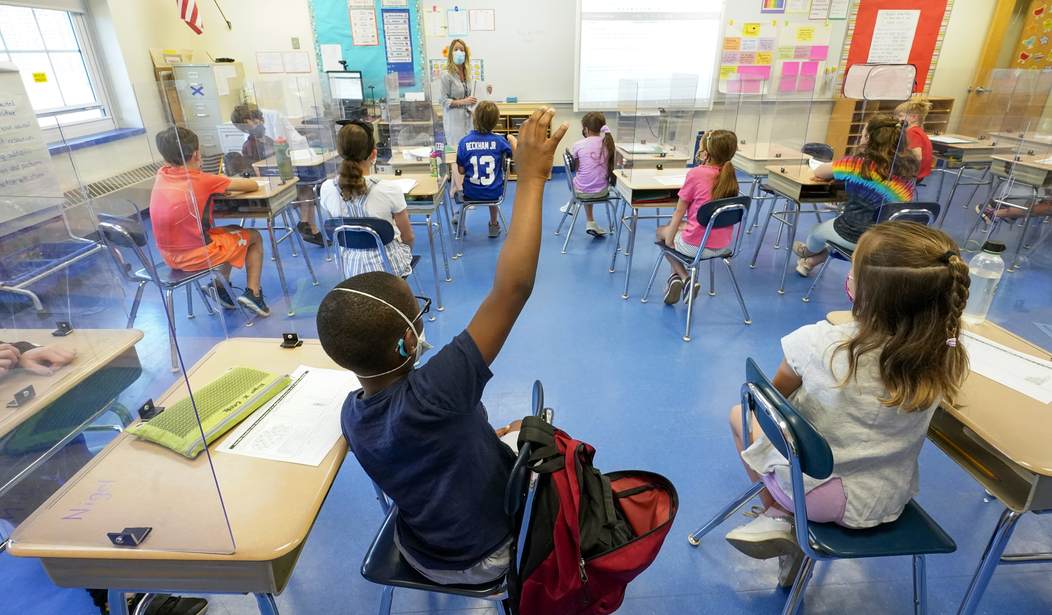Last week, the National Assessment of Education Progress issued its latest long-term trend assessment report. The results are clear: We are failing to teach our children the basics of math and reading. These results are based on tests taken before the pandemic. Just imagine how much worse the next round of tests will be due to all the interruptions to learning and education, as well as the additional stress caused by the pandemic.
The report, titled "The Nation's Report Card," show that we are getting worse, not better, at teaching our children reading and math. This should concern everyone -- parents, teachers, employers, educations, politicians and even students.
The "NAEP is a congressionally mandated project administered by the National Center for Education Statistics, within the U.S. Department of Education and the Institute of Education Sciences," according to its website, nationsreportcard.gov. Project administrators are tasked by the government to give our education system a report card. This latest report card, based on the recent data, shows that we need to return to the basics.
"Compared to the previous LTT assessments in 2012, the 2020 reading scores for both 9- and 13-year-olds performing at the 10th percentile were lower," the report noted. "In mathematics, scores were lower in 2020 for 9-year-olds at the 10th and 25th percentiles and lower for 13-year-olds performing at the 10th, 25th and 50th percentiles compared to scores in 2012." There was no case of any improvement from the 2012 LTT scores in either math or science in any percentile. The only trend was down.
Part of what might be driving the lower reading numbers is the fact that students are not reading as much on their own. "Smaller percentages of 9- and 13-year-old students reported reading for fun on their own time 'almost every day' in 2020 compared to the previous long-term trend assessment in 2012," noted the report. "During the same time period, larger percentages of 9- and 13-year-old students in 2020 reported that they 'never or hardly ever' read for fun on their own time."
Recommended
To get better at anything, especially reading, you have to take time on the task. Reading more makes you a better reader. When my children were younger, they each had reading time before bed. They might not have liked it at that time, but their reading skills improved. The same goes for math. Math is a topic that requires mastery of the fundamentals before moving on to more complicated concepts. It's easy to fall behind. According to the report, fewer students were taking pre-algebra and algebra -- the higher-level math courses for their ages -- in 2020 than in 2012.
Education has taken the spotlight in the governor's race for the Commonwealth of Virginia. Terry McAuliffe, former governor and Democratic nominee, was asked during a debate about parents objecting to CRT being taught in schools. "I'm not going to let parents come into schools and actually take books out and make their own decisions," McAuliffe said. "I don't think parents should be telling schools what they should teach."
Republican nominee Glenn Youngkin immediately seized on this quote and has released a video of additional McAuliffe quotes that, together, present a view of little parent control. Youngkin's point is that parents should have a say in their children's education.
According to a Real Clear Opinion poll released in April, 71% of voters are for school choice.This support is both on the Democratic (69%) and the Republican (75%) sides of the political aisle. When The Winston Group surveyed voters in September about the results of the 2018 Programme for International Student Assessment, which reported that the United States ranks "37th in math, 18th in science and 13th in reading" compared to other countries and that "60% (of those surveyed) considered this to be poor or failing." No political nor racial group thought that this was excellent, good or satisfactory.
My point is that we are failing our children. We need to start with the basics, reading and math.

























Join the conversation as a VIP Member